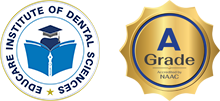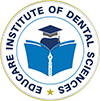In the realm of dental education and professional development, mastering essential skills is paramount for aspiring dental students. Beyond the theoretical knowledge acquired in dental school, honing practical competencies sets the foundation for a successful career in dentistry. These fundamental skills encompass a spectrum of disciplines, from clinical proficiency to effective communication and patient management. Aspiring dentists must navigate complex procedures, ethical dilemmas, and patient interactions with precision and empathy. This introduction sets the stage for understanding the critical role of acquiring and refining essential skills in dental education, ultimately shaping the trajectory of a fulfilling and impactful dental profession.
Effective Communication: Crucial for Building Trust with Patients and Colleagues
Effective communication lies at the heart of dentistry, fostering trust among patients and collaboration among colleagues. In inpatient care, clear communication transcends mere dialogue; it establishes rapport, allays anxieties, and ensures informed decision-making. Dentists proficient in patient communication empower individuals to actively participate in their oral health journey, fostering long-term relationships built on trust and mutual respect. Moreover, within the dental team, adept communication facilitates seamless coordination, enhancing workflow efficiency and patient outcomes. From chairside mannerisms to interdisciplinary collaborations, honing communication skills equips dental professionals with the ability to navigate diverse scenarios and forge enduring connections within the dynamic landscape of dentistry.
Clinical Proficiency: Mastering the Technical Skills of Dentistry
Clinical proficiency stands as the cornerstone of excellence in dentistry, encapsulating the mastery of technical skills essential for delivering quality patient care. Through rigorous clinical skills training and hands-on experience, dental students cultivate the precision and dexterity necessary to perform a myriad of dental procedures with finesse and efficiency. From intricate restorative work to complex surgical interventions, proficiency in dental techniques and procedures empowers practitioners to address diverse patient needs with confidence and precision. By embracing continuous learning and refinement, dental professionals uphold the highest standards of clinical excellence, ensuring optimal outcomes and patient satisfaction within the dynamic landscape of modern dentistry.
Problem-Solving and Critical Thinking: Navigating Complex Cases and Treatment Plans
In the realm of dentistry, problem-solving and critical thinking serve as indispensable tools for navigating the intricacies of dental diagnosis and treatment planning. Dental professionals encounter a myriad of complex cases and treatment scenarios that demand astute analysis and strategic decision-making. From deciphering diagnostic data to formulating comprehensive treatment plans, adept problem-solving skills enable dentists to address patient needs effectively while considering factors such as oral health status, patient preferences, and treatment outcomes. Moreover, critical thinking abilities empower practitioners to evaluate alternative approaches, anticipate potential challenges, and adapt strategies accordingly, fostering innovation and excellence in dental practice. By cultivating a proactive mindset and embracing continuous learning, dental professionals uphold the highest standards of clinical care and patient satisfaction in an ever-evolving healthcare landscape.
Professionalism and Ethical Standards: Upholding Integrity in Dental Practice
Professionalism and ethical standards form the bedrock of integrity in dental practice, guiding practitioners in upholding the highest ideals of patient care and professional conduct. Rooted in principles of respect, honesty, and accountability, dental ethics delineate the boundaries of ethical behavior and shape the dentist-patient relationship. Adhering to professional codes of conduct, dental professionals prioritize patient well-being, confidentiality, and informed consent, ensuring that every interaction reflects a commitment to ethical excellence. Moreover, ethical decision-making in dental care requires a nuanced understanding of moral dilemmas, cultural sensitivities, and legal obligations, empowering practitioners to navigate complex scenarios with integrity and compassion. By embodying professionalism and ethical standards, dentists uphold the trust of their patients and the integrity of the dental profession, fostering a culture of excellence and accountability in oral healthcare delivery.
Mastering these Essential Skills is Key to Flourishing as a Dental Professional
Mastering essential skills is crucial for dental professionals’ success. Effective communication fosters trust and clarity during complex procedures and nervous patient interactions. Clinical proficiency ensures precise execution, whether in root canals or cosmetic dentistry, guaranteeing optimal outcomes. Problem-solving skills aid in crafting treatment plans considering cost, longevity, and patient preferences, especially in complex cases. Upholding professionalism and ethical standards maintains integrity by prioritizing patient well-being over financial gain and respecting confidentiality. Through continuous learning and experience, dentists refine these skills, delivering exceptional care while upholding the highest standards of professionalism and integrity in dentistry.

